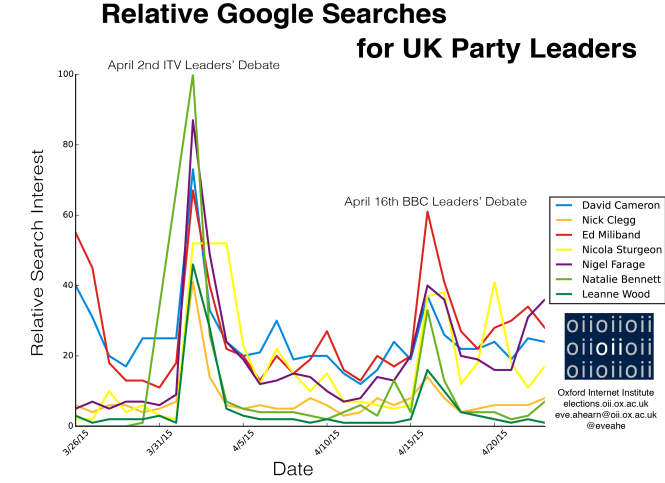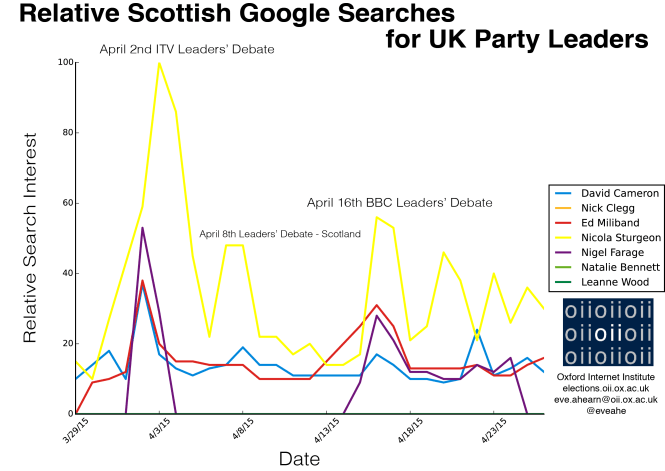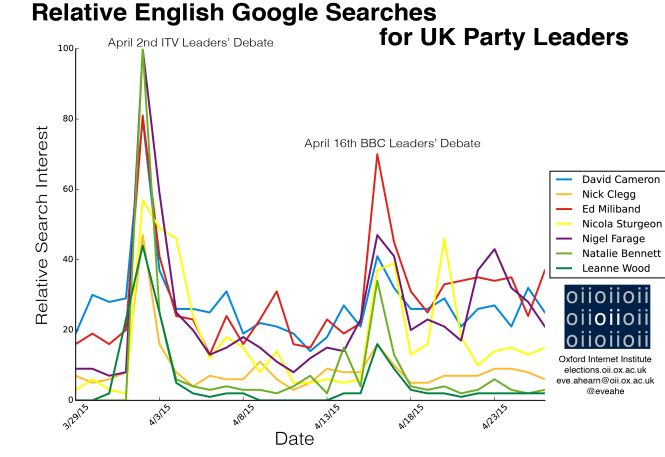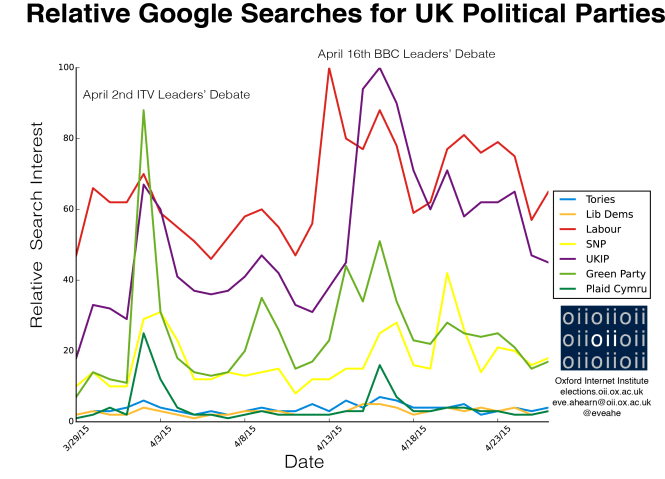29 Apr 2015
 Following the April 2nd Leaders’ Debate the media portrayed Nicola Sturgeon, the leader of the Scottish National Party, as the victor of the night, or at least a victor. “Cameron was robotic but Sturgeon impressed” ran a headline for one of The Guardian’s post-debate pieces. The headline for The Independent went even further, stating “’Can I vote for the SNP?’ voters ask after Nicola Sturgeon’s winning performance.”
Following the April 2nd Leaders’ Debate the media portrayed Nicola Sturgeon, the leader of the Scottish National Party, as the victor of the night, or at least a victor. “Cameron was robotic but Sturgeon impressed” ran a headline for one of The Guardian’s post-debate pieces. The headline for The Independent went even further, stating “’Can I vote for the SNP?’ voters ask after Nicola Sturgeon’s winning performance.”
Based off of Google trends data though, one can see that Sturgeon did not dominate in this arena. She only briefly topped the Google trends for a few days of the week ending on Saturday the 4th; Sturgeon did not top the trends on the day off the debate itself. In fact, it was Natalie Bennett who was the most searched for party leader, not only in absolute value but also in the relative increase from the weeks before.
Google trends is not, of course, equivalent to voting likelihood. A high rate of searches could simply mean that the politician had little name recognition prior to the debate. However it does indicate information seeking behavior. Political predictions have historically been based on polls of user behavior. Information seeking, as in people searching out more info on a candidate or politician, would have been overly difficult to trace. Of course, the Internet changes that.
Now we can see that while Nicola Sturgeon did have an overall increase in Google searches after the April 2nd debate, along with every other party leader, her bump was far greater in Scotland, as compared to searches in England.
While the candidates themselves inspired interest (or some of them at least), almost no one it seems was prompted to search for information about the parties. The patterns relating to the debates are barely discernable in the search trends. The Tories and the Lib Dems had particularly low rates of searches, and both were the only parties without any visible peak in interest whatsoever during the debates. This is in line with the findings so far of the Social Election Prediction Project: voters are more likely to seek information online about minority parties or new parties than they are to look up information on the political parties in power. This would explain the peak in searches for the minority Green Party on April 2nd.
*Note that the y-axis for Google search trends is not an absolute number of searches, but rather the relative number of searches for that term as compared to other terms searched for simultaneously. The relativity and timeframe is important in discussing these results. The graphs above all have the relative rate of search results averaged over each day. Following the April 2nd debate, Google provided search trend information to The Guardian that does not exactly match up with the above. According to that data, Leanne Wood was the most searched for politician “through the debate.” It’s possible that the difference with the above is that Google was measuring only searches that took place during the exact time of the debate, and was not including anyone prompted to seek new information afterwards. Apparently the most-Googled question during the debate though is a key one: “Who is winning the debate?”


